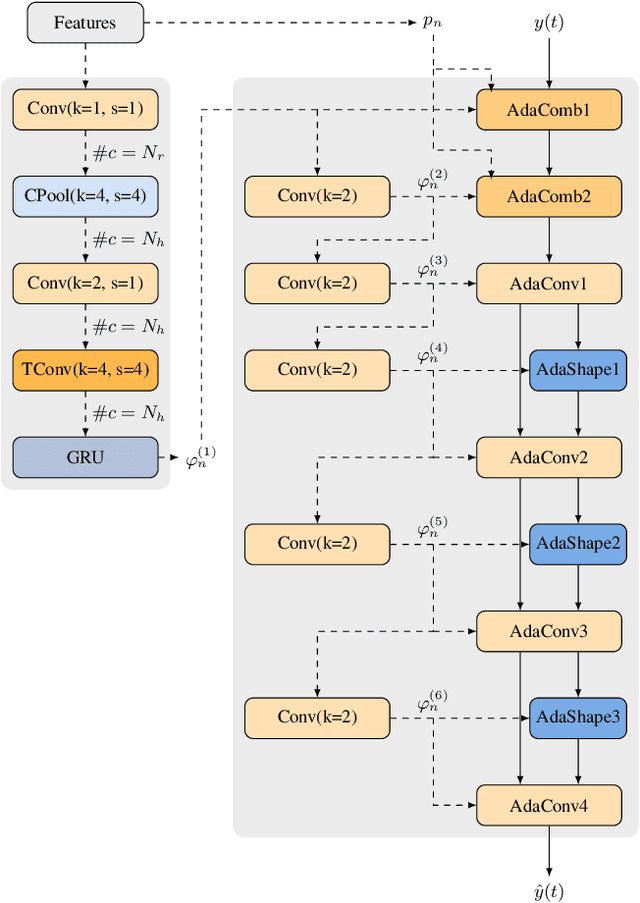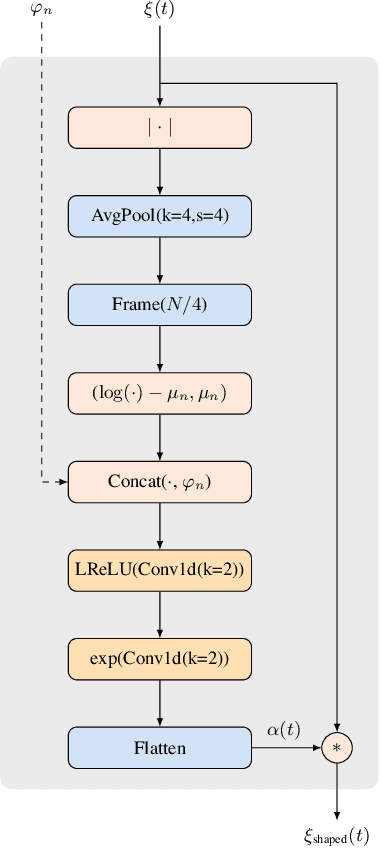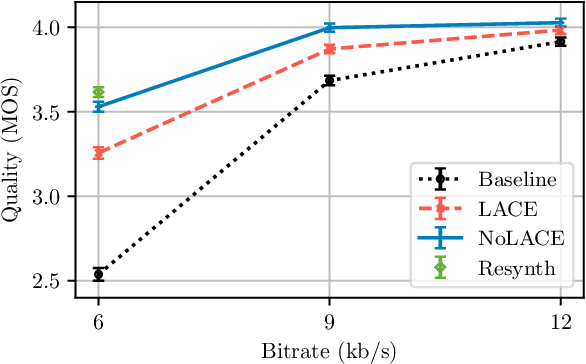NoLACE: Improving Low-Complexity Speech Codec Enhancement Through Adaptive Temporal Shaping
Paper and Code
Sep 25, 2023



Speech codec enhancement methods are designed to remove distortions added by speech codecs. While classical methods are very low in complexity and add zero delay, their effectiveness is rather limited. Compared to that, DNN-based methods deliver higher quality but they are typically high in complexity and/or require delay. The recently proposed Linear Adaptive Coding Enhancer (LACE) addresses this problem by combining DNNs with classical long-term/short-term postfiltering resulting in a causal low-complexity model. A short-coming of the LACE model is, however, that quality quickly saturates when the model size is scaled up. To mitigate this problem, we propose a novel adatpive temporal shaping module that adds high temporal resolution to the LACE model resulting in the Non-Linear Adaptive Coding Enhancer (NoLACE). We adapt NoLACE to enhance the Opus codec and show that NoLACE significantly outperforms both the Opus baseline and an enlarged LACE model at 6, 9 and 12 kb/s. We also show that LACE and NoLACE are well-behaved when used with an ASR system.
 Add to Chrome
Add to Chrome Add to Firefox
Add to Firefox Add to Edge
Add to Edge